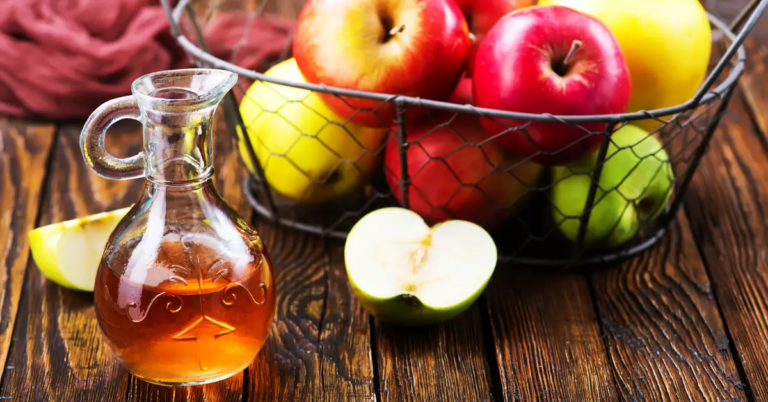The fast-food industry has faced mounting criticism over the years for its unhealthy practices and ingredients. A recent case in point is Chick-fil-A’s chicken sandwiches, which have come under scrutiny for containing anti-foaming chemicals found in substances like adhesives, caulks, and polishes.
Ingredients Revealing Potential Health Hazards
Upon perusing the ingredient list provided by Chick-fil-A on their website, potential health risks emerge. Some of the ingredients are standard food additives; however, a few raise significant concerns, primarily due to their common usage outside the culinary world.
Dimethylpolysiloxane: Not Just for Food
The standout compound is dimethylpolysiloxane, an anti-foaming agent used in the oil for frying chicken. The Food and Drug Administration (FDA) categorizes it as safe for consumption, but there is growing apprehension regarding the safety of dimethylpolysiloxane, particularly in the context of unrestricted application within fast food establishments. Notably, its approval is contingent upon specific dosage limits. Ensuring strict adherence to these limits becomes a crucial concern, as exceeding the prescribed threshold raises questions about the potential for excessive intake. [1,2,3]
This same agent, alarmingly, also features in silicone caulks, adhesives, aquarium sealants, defoaming agents, mold release agents, damping fluids, heat transfer fluids, polishes, cosmetics, hair conditioners, and more. The fact that a chemical used in various industrial and cosmetic products is present in the food we consume is a matter of concern due to the potential health implications. Fast food is known for its widespread consumption, particularly by children and adolescents, making it vital to examine the implications of the use of dimethylpolysiloxane.
Other Concerning Additives
Monosodium glutamate (MSG) is also commonly added to boost flavor. However, it has also been linked to health issues. Side effects such as headaches, nausea, and allergic reactions have been documented, with some studies pointing to its contribution to obesity and other health complications. [4,5]
Chick-fil-A sandwiches also contain potassium sorbate, sodium aluminum phosphate, and DATEM, which have been linked to allergic reactions, toxic effects on organs, kidney damage, bone loss, and respiratory issues, respectively. [6,7,8]
Moreover, multiple instances of sugar, soybean oil, palm oil, and other FDA-recognized chemical preservatives feature prominently.

A Global Health Epidemic
Statistics indicate that fast food consumption remains a major contributor to health issues, despite growing awareness of its potential risks. According to data from the National Center for Health Statistics, 36.6% or nearly 85 million adults in the US consumed fast food on any given day from 2013 to 2016. This trend persists, contributing to skyrocketing rates of obesity, heart disease, and diabetes. [9]
This problem is not limited to Chick-fil-A. It is an issue industry-wide, as many fast-food companies utilize similar ingredients in their products. Misrepresentation of these ingredients exacerbates the problem, as consumers may be misled about the nutritional value of the foods they are purchasing.
Misrepresentation and Misinformation
Chick-fil-A’s website claims their Chicken Sandwich is served “on a buttered bun.” However, a deeper dive into the ingredients reveals the truth: the bun is flavored with soybean oil and palm kernel oil, with no real dairy involved.
This misinformation poses a significant issue as it obscures the true nutritional content of their products, making it challenging for consumers to make informed dietary decisions.
Alternative Choices for Better Health
Fortunately, healthier alternatives exist. Preparing grilled chicken sandwiches at home using whole-grain buns, fresh vegetables, and lean protein can provide a nutritious alternative. Cooking techniques like air frying instead of deep frying can also significantly reduce the intake of potentially harmful chemicals.
While fast food remains a staple in many people’s diets, consumers must be aware of what they are ingesting. Chick-fil-A ‘s chicken sandwiches, like many other fast-food products, contain several ingredients that could have negative health consequences.
As consumers, understanding and scrutinizing the food we consume is essential for maintaining good health. This begins with making informed decisions about food choices. It also involves pushing for transparency from fast food companies about their ingredients and preparation methods.
The fast-food industry needs to address these issues seriously, not just for their customers’ well-being but also for the long-term sustainability of the industry. Positive change will require industry-wide action to reduce harmful additives, offer healthier alternatives, and improve ingredient transparency.
While the journey to healthier fast food may seem daunting, it is not impossible. With increased consumer awareness, stricter regulation, and improved practices within the industry, we can create a food landscape where fast food is not synonymous with unhealthy food.

If you find that your diet is predominantly composed of fast food or aligns more with the Standard American Diet (SAD), characterized by high consumption of red meat, processed foods, sugary drinks, and minimal intake of fruits, vegetables, and whole grains, it may be beneficial to consider daily liver support supplements.
The liver plays a critical role in detoxifying the body, metabolizing nutrients, and regulating various bodily functions. The high fat, sugar, and additive content in fast food can overwork and stress your liver, reducing its efficiency. Taking liver support supplements can provide the necessary nutrients to enhance your liver’s functionality, helping it process the toxins often found in fast food more efficiently.
However, it’s important to remember that supplements can only do so much and are not a replacement for a balanced, nutritious diet. Always consult with a healthcare professional before starting any new supplement regimen. Regular exercise, adequate hydration, and a diet rich in fresh fruits, vegetables, lean proteins, and whole grains will be most effective in promoting overall health and optimal liver function. You may also want to consider a liver cleanse.
My Personal RX:
1. Consider decreasing the amount of fast food in your diet and opt for whole food instead at least 80% of the time.
2. Download a free copy of my 50-page Protocol for Optimizing Your Health & Wellness
3. Take a daily Liver Support Supplement to keep your natural detoxification system humming, along with a fiber supplement to help facilitate the removal of toxins.
4. Exercise daily.

Sources:
- CFR – Code of Federal Regulations Title 21 – U.S. Food & Drug Administration
- 395. Dimethylpolysiloxane (WHO Food Additives Series 6)
- Re‐evaluation of dimethyl polysiloxane (E 900) as a food additive – – 2020 – EFSA Journal
- Hernández Bautista RJ, et al. Obesity: Pathophysiology, monosodium glutamate-induced model and anti-obesity medicinal plants. Biomedicine & Pharmacotherapy, Volume 111, 2019, Pages 503-516, ISSN 0753-3322, https://doi.org/10.1016/j.biopha.2018.12.108
- He K, Zhao L, Daviglus ML, et al. Association of monosodium glutamate intake with overweight in Chinese adults: the INTERMAP Study. Obesity (Silver Spring). 2008;16(8):1875-1880. doi:10.1038/oby.2008.274
- Potassium Sorbate
- Sodium Aluminum Phosphate
- DATEM
- NCHS Data Brief ■ No. 322 ■ October 2018 – Fast Food Consumption Among Adults in the United States, 2013–2016











 Subscribe to Ask Dr. Nandi YouTube Channel
Subscribe to Ask Dr. Nandi YouTube Channel









